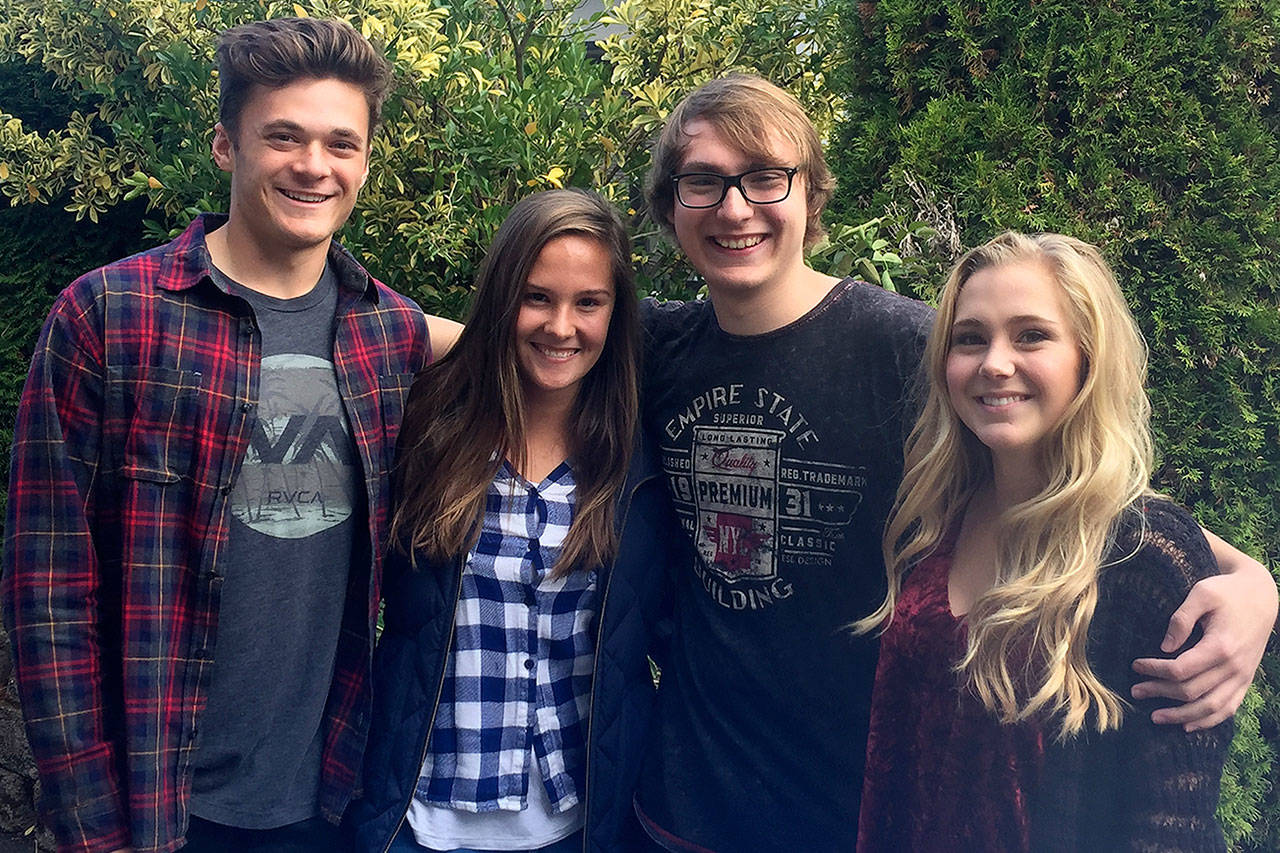Our lives are made up of boundaries.
They can be physical, like the walls separating you from your boss’ office, or your fence separating your private home from the public street.
They can be political, like the boundaries of states or the laws of countries.
They can be societal, like the unspoken rules of dating or the color of your skin.
And they can be personal, like your moral or family values.
Four Sumner High School students explored all this and more last summer when they attended the International Baccalaureate (IB) Organization’s World Student Conference in New York.
This year’s theme was “Defining and Defying Boundaries,” and seniors Emma Rothleutner, Zach Nett, Blake Ellison and Claire Robinson spent a week at the University of Rochester with other IB students from around the world to discuss the boundaries we all encounter in our lives.
Typically, only two students from Sumner attend the annual IB conference, since that’s all the money the Sumner-Bonney Lake Scholarship Education Foundation is able to provide every year.
Emma and Blake were selected to go after coming out on top in a rigorous essay competition, but Zach and Claire felt the event was important enough for them to go on their own dime (or, more accurately, their parents’).
“Going into it, I think a lot of people thought ‘boundaries’ as this negative connotation of stereotypes, and that was a major part of our discussion — breaking down these stereotypes,” Blake said. “One of the projects some kids did was ‘Dare to Look Up.’ It was about breaking the boundary between you and your phone. That was one I thought was pretty cool.
“But the more we talked, the more we found out that boundaries don’t have to be just negative. Boundaries are important with our laws, our countries, that sort of thing,” he continued. “There two different ways to look at a boundary.”
Half the conference consisted of lectures with professionals talking about a specific boundary in their field — Imam Khalid Latif, a co-founder of the Of Many Institute for Multifaith Leadership, Kit Miller, the director of the M. K. Gandhi Institute for Non-Violence, and Dr. John J. Treanor, a University of Rochester professor of medicine, were among the speakers at the event, talking to students about the boundaries they’ve encountered in the world of religion, racial politics and even infectious diseases.
The other half involved active discussion about these events, with students getting into widely diverse groups to talk about a specific topic at hand, or their own experiences with boundaries. These groups also came up with a Creativity, Action and Service (CAS) project students could bring back to their schools to organize.
A CAS project is a requirement to graduate the IB program.
“My group, we thought an important boundary that needed to be defined was cultural appropriation,” Emma said. “We talked about how you can use culture so you can appreciate it without appropriating it, and how we needed to define the boundary as to what was right and what was wrong, but not necessarily defy it, because a lot of the time we don’t realize our actions can become offensive.”
As an example, Claire brought up the Washington Redskins, and how the baseball team’s name is an offensive term for Native Americans.
They’re not the only sports team with a controversial name, and a Native American in Claire’s group talked about what it was like to go to a public high school where the mascot was an offensive parody of her culture.
While some lectures focused on cultural or societal boundaries, Brian was drawn to the Kit Miller lecture about non-violence and boundaries people have in interpersonal relationships.
During the lecture, Miller had students pair up with another person to talk about what conflict looked like in their households.
“I was paired with this young woman from Chandigarh, India. I went first — I said my conflict was bickering with my brother about who showers first, who gets the X-box controller, stuff like that,” Brian said. “But when she started talking, she said her parents, her grandmother has hated her because she was born a woman. And that put me back a second, because I’ve never seen firsthand parents not loving their children. It broke a perspective that I had, that all parents love their kids.”
All four students said this breaking of their personal boundaries was the most important aspect of the conference.
“IB is definitely more about camaraderie of students, and this group we form and this worldwide bond we create through our learning,” Zach said. “I think meeting new people that come from such different backgrounds have so many different domestic issues at home, but despite all this, we’re all together, looking toward the future. That’s a cool boundary we’re able to defy.”


